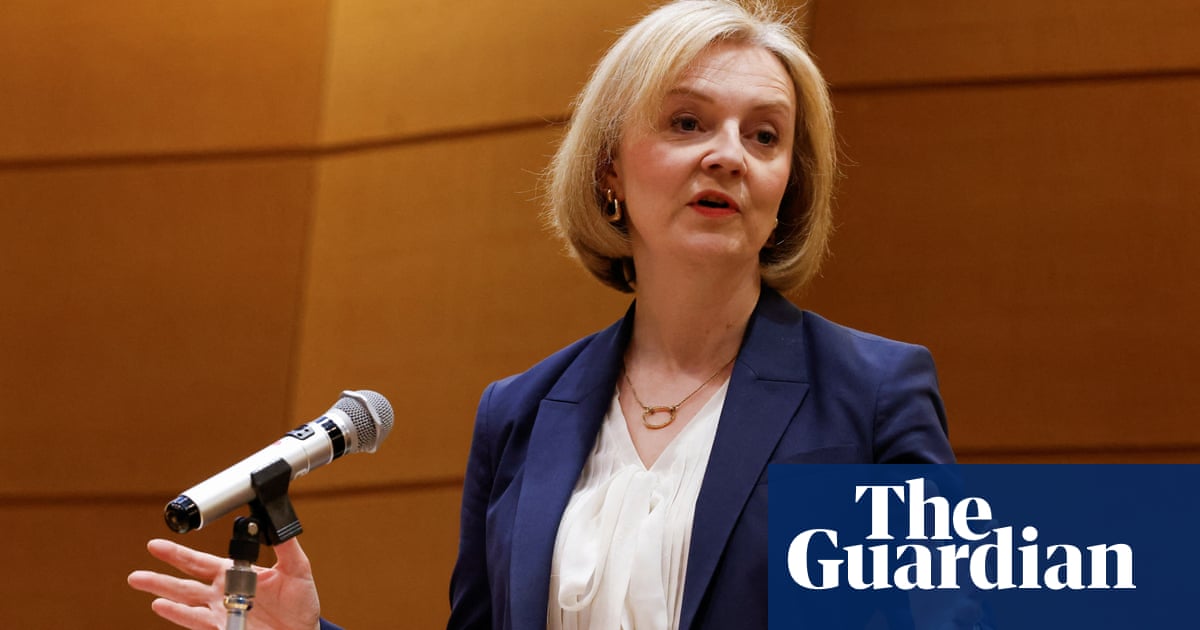
Liz Truss will attend the inaugural summit of the European Political Community (EPC) next week, an initiative by the EU aimed at uniting the continent to work together on security and other common projects.
The prime minister plans to attend the first EPC summit in Prague on 6 October, a No 10 source told the Guardian, despite her scepticism about the EU-led initiative.
Truss, a former remainer who became an ardent convert to Brexit, is said to still be sceptical, but willing to engage and keen to ensure the new organisation does not cut across Nato or the G7.
She wants the club to focus on issues such as migration and security, rather than creating structures. Some of her aides were also concerned about the optics of joining another European club so soon after Brexit.
Proposed by French president Emmanuel Macron in May, the EPC was later endorsed by the EU, which is now organising the event. Macron envisaged a club of European democracies working together on security, but also energy, transport, infrastructure and easier movement across borders for young people. Truss would like the organisation to focus above all on energy, migration and security, topics that are expected to be on the agenda next week.
EU officials have invited 27 EU member states and 17 non-EU nations. The non-EU nations include nine countries hoping to join the EU, including Ukraine, Moldova, Georgia and six western Balkan states, as well as Norway and Switzerland, non-members that are deeply integrated into EU structures. Turkey, whose EU membership hopes have long been on ice, has not publicly accepted its invitation, which was issued despite reservations from Greece and Cyprus.
The head of the European Council, Charles Michel, told the Guardian earlier this month that it was obvious the UK should be invited, saying: “The United Kingdom is a friend, a partner, a like-minded partner.”
EU officials rejected suggestions in some UK media reports that Truss could send her foreign secretary, James Cleverly, in her place, arguing that only heads of government could attend. Michel has said the new organisation should be a flexible structure like the G20, in response to concerns that it could duplicate other bodies, such as the Organisation for Security and Cooperation in Europe.
Diplomats from invited countries held talks on Thursday in Prague to prepare the ground for the meeting. “Participants shared the aim of the meeting: offering a political platform for dialogue, reinforcing peace, stability and prosperity on the continent,” an EU official said.












